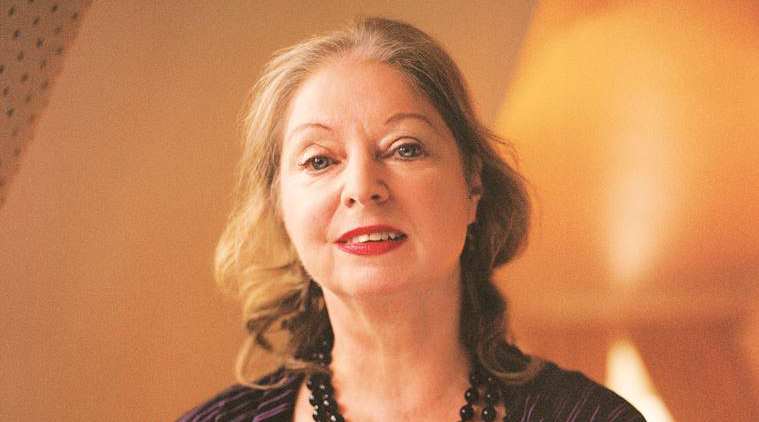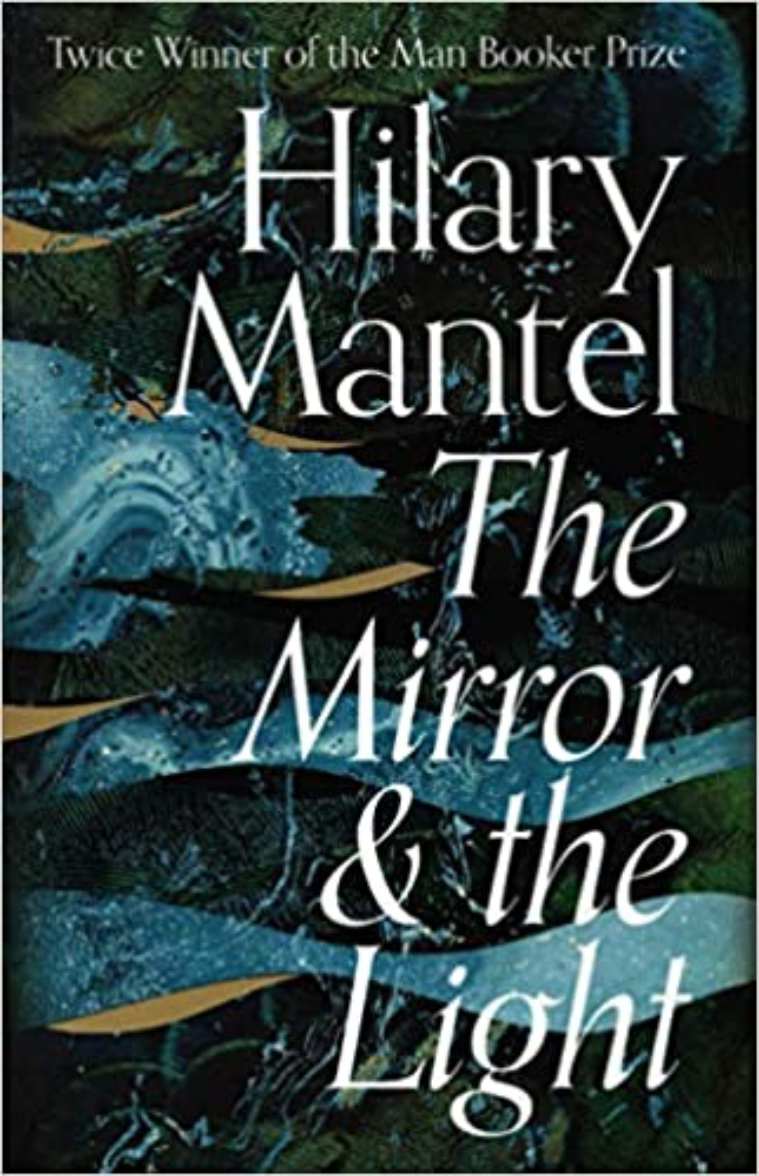 The author Hilary Mantel at her home near London, Feb. 20, 2020. Mantel’s new novel, “The Mirror and the Light,” concludes her trilogy about the life of Thomas Cromwell. (Ellie Smith/The New York Times)
The author Hilary Mantel at her home near London, Feb. 20, 2020. Mantel’s new novel, “The Mirror and the Light,” concludes her trilogy about the life of Thomas Cromwell. (Ellie Smith/The New York Times)
In the Mirror and the Light, Hilary Mantel’s incandescent masterpiece, and the conclusion to the trilogy that includes Wolf Hall (2009) and Bring Up the Bodies (2012), we meet Thomas Cromwell at the execution of Queen Anne Boleyn, the second wife of Henry VIII. Cromwell, the son of a violent blacksmith, has, through sheer will, ruthlessness, intelligence, inventiveness, intrigue and ingenuity become the most powerful man in England. “Even in the Republic of Virtue you need a man who will shovel up the shit, and somewhere it is written that Cromwell is his name.” Henry VIII cannot function without him. He is Lord of the Privy Seal, but no title can describe his power. Nothing in England is untouched by it. He arranges brides for kings. He makes and breaks alliances. He levies taxes. He causes rebellions and suppresses them. He controls the circulation of goods. He controls information that allows him to preempt plots and hatch them. He directs the course of the Church and the fortune of churchmen. He redefines faith. He commands power over life itself, sending the mightiest to the Tower if not the gallows. He makes the state tick, in all its gore and glory. Or, so it seems.
Meanwhile, there is Henry VIII, navigating the tension between the omnipotence that a sovereign trying to remake the world has to project, and the near impotence he displays in settling his family affairs and the question of succession. Cromwell offers Henry both the solace and the inspiration, “Your majesty is the only Prince, the Mirror and Light of other Kings.” But you cannot shake off the feeling that Cromwell is the real mirror, someone whose superabundant life reflects every single contradiction of society: the embodiment of Machiavellianism, whose piety seems genuine; the self-made centre of power, who is often put in his place because of his lowly origins; the man with a brutal childhood striving to be tender with his own children; the man of action who is capable of unusual self-reflection; the man who is deeply steeped in the cynicism of social and political life, and haunted by the thought of justifying his life to the Maker. There is a character who prides himself on not letting the past be a fetter, but who is haunted by ghosts of the past. And then, there is the ultimate irony: the man whose intelligence renders all of society transparent to him fails to read those closest to him; a fate he shares with Henry. Can all the intelligence and power in the world secure us against the opacity of other human beings?
 Mantel carries her learning lightly, and the rich historical texture, the precisely honed descriptions never weigh down the drama.
Mantel carries her learning lightly, and the rich historical texture, the precisely honed descriptions never weigh down the drama.
What seems, at first glance, just a virtuoso English historical novel, slowly and unexpectedly acquires a depth that goes to the core of human existence. For all its lightly expressed seriousness, the novel is sheer fun. It has swashbuckling and incredibly witty interchange that sustain you page after page. It is the veritable saga of a country in the making, as theological wars, petty intrigues, diplomatic manoeuvres, disease, political economy, court intrigues and class distinctions provide a heady mix to the story. A whole world comes alive with almost cinematic precision. But Mantel carries her learning lightly, and the rich historical texture, the precisely honed descriptions never weigh down the drama. Her skill is precisely to turn historical detail into compelling human drama. The novel is rich in detail. One of the novel’s extraordinary qualities is that no detail seems superfluous — their significance unfolds later.
All great novels are, at their core, brilliant pieces of moral psychology. Mantel slowly peels the layers of each of the characters and they acquire an inner depth that takes this novel to new heights. Not a single character, male or female, master or servant, or even ones who are mere cameos, are caricatures. Mantel can create whole psychological worlds in two sentences. Many of the set pieces are haunting in their power: the execution of Anne Boleyn, Henry’s reckoning with the question of King’s Two Bodies: Henry the Man and Henry the Monarch, the trauma around Queen Jane Seymour’s death. But Cromwell’s last journey, when the full measure of his life comes back to haunt him, will surely rank as one of the greatest scenes in all of literature. Between Cromwell’s prayers runs a line of verse: “But how that is I leave to you/ Judge as ye list, false or true/ Ye know no more than afore ye knew/ Yet I am as I am whatever ensue.”
Cromwell’s world knew something the modern world, in its conceit, thinks it invented: the radical contingency of everything. For us moderns, contingency is an idea; for the Tudors, it was a condition, as no one could ultimately resist the ravages of fortune. In the saga of Cromwell snatching snippets of order and personal advancement in this radically contingent world, Mantel has created a tour de force. It is not much of an exaggeration to say that The Mirror and the Light is a strong contender for one of the most dramatically evocative, descriptively pitch-perfect, and humanly profound novels ever written.
Pratap Bhanu Mehta is contributing editor, The Indian Express